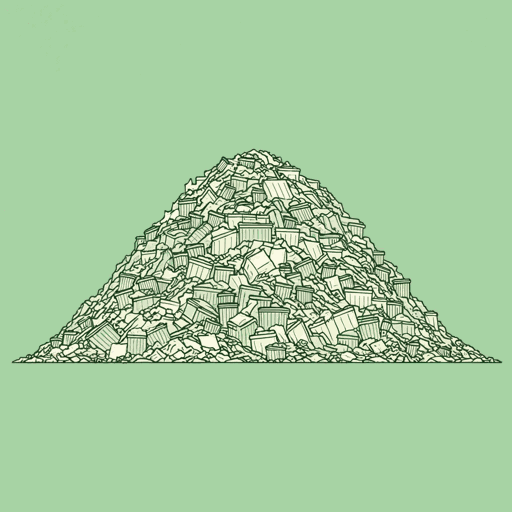51 pages • 1 hour read
Edward HumesGarbology: Our Dirty Love Affair
Nonfiction | Book | Adult | Published in 2012A modern alternative to SparkNotes and CliffsNotes, SuperSummary offers high-quality Study Guides with detailed chapter summaries and analysis of major themes, characters, and more.
Part 1, Chapters 4-6Chapter Summaries & Analyses
Part 1: “The Biggest Thing We Make”
Chapter 4 Summary: “The Last and Future Kingdom”
Waste Management is the largest waste disposal company in the world, but its real business is in real estate investment in landfills. David Steiner, the CEO of Waste Management, believes landfills are a solution, not a problem. He says, “There will always be waste […] And we’ll always need landfills” (84). He does concede, though, that more of his business is becoming devoted to “zero waste” technologies that enable recapturing the value of waste. Steiner even posits that in the future, Waste Management will pay for trash to convert into valuable materials.
In the 1980s, Waste Management led an effort to privatize the waste disposal industry that diffused sustainability efforts. In the 1970s, the EPA recommended extracting value from waste prior to landfilling, but action never materialized because of the expense and risk of such processes and the availability of cheap landfill space. After decades of rapid expansion in the landfill business and a near collapse after its illegal toxic dumping was discovered, Waste Management went green. As of 2013, the company had over 100 waste-to-energy power plants that powered over one million homes and 1,000 garbage trucks. Humes notes that Waste Management’s green initiatives rely on landfills.
Related Titles
By Edward Humes



